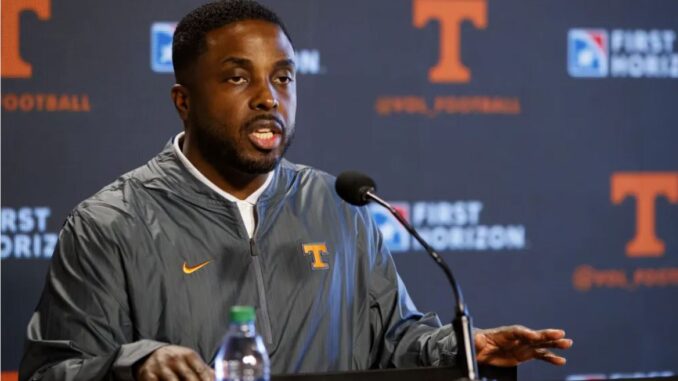
Tennessee Vols Part Ways With Defensive Coordinator Over Unpaid Bonuses
In a surprising turn of events, the University of Tennessee and its defensive coordinator have parted ways amid allegations of unsettled debts involving unpaid bonuses. This development has left fans and analysts speculating about the underlying causes and the potential ripple effects on the football program.
The Unfolding Drama
The Tennessee Volunteers announced the departure of their defensive coordinator, whose tenure was marked by a mix of defensive highs and struggles. While coaching changes are not uncommon in college football, this separation is particularly noteworthy due to the circumstances surrounding it. Reports indicate that the coordinator was embroiled in a dispute with the university over unpaid bonuses, a situation that has drawn attention to the administrative and financial workings of the athletics department.
Sources close to the program revealed that the unpaid bonuses were linked to performance incentives outlined in the coordinator’s contract. These incentives reportedly included benchmarks such as improvements in defensive rankings, bowl game appearances, and other team achievements. Despite meeting several of these targets, the coordinator allegedly did not receive the promised financial rewards, leading to a breakdown in relations with the university.
Implications for the Tennessee Football Program
The departure of the defensive coordinator mid-tenure raises several questions about the stability of the Tennessee football program. The team’s defensive performance has been a critical factor in its overall success in recent seasons. With a new season on the horizon, the sudden change in leadership could disrupt continuity and affect player morale.
Additionally, this incident has cast a spotlight on the financial management practices within the athletics department. Unpaid bonuses not only undermine trust between coaches and the administration but also risk tarnishing the program’s reputation in the highly competitive world of college football. Potential recruits and staff may view this situation as a red flag, making it more challenging for Tennessee to attract top talent.

Statements from Key Stakeholders
The university issued a brief statement acknowledging the departure, emphasizing its commitment to addressing the matter internally. “We thank [Defensive Coordinator’s Name] for his contributions to the program and wish him the best in his future endeavors. The University of Tennessee is dedicated to upholding the highest standards of integrity and accountability,” the statement read.
The former defensive coordinator has not released a detailed public comment but is rumored to be considering legal action to recover the unpaid bonuses. Legal experts suggest that if the coordinator’s claims are substantiated, the case could set a precedent for how performance-based contracts are enforced in collegiate athletics.
What’s Next for Tennessee?
The immediate priority for the Tennessee Volunteers will be finding a capable replacement to lead the defense. With recruiting season in full swing, the timing of this change adds an additional layer of urgency. Interim solutions may involve promoting from within the current coaching staff or quickly securing an external hire.
Beyond the X’s and O’s, the university must also address the broader issues highlighted by this incident. Strengthening financial transparency and ensuring timely fulfillment of contractual obligations will be crucial steps to prevent similar controversies in the future.
Conclusion
The Tennessee Volunteers find themselves at a crossroads, grappling with the fallout of a high-profile dispute. As the program looks to move forward, it must balance the immediate need for defensive leadership with the long-term imperative of rebuilding trust and credibility. For fans, players, and stakeholders, the hope is that this challenge will serve as a catalyst for positive change, both on and off the field.

Leave a Reply